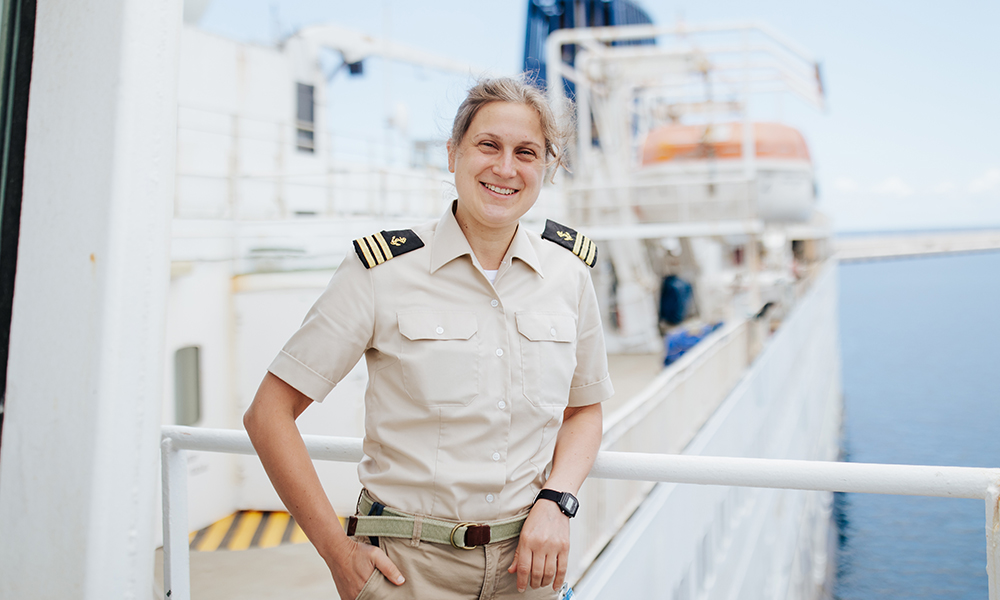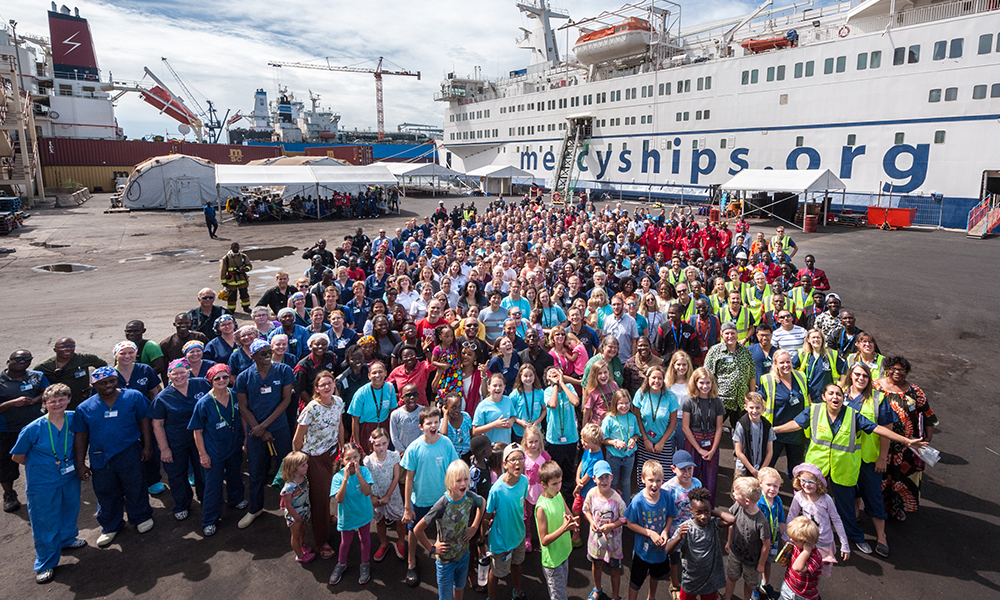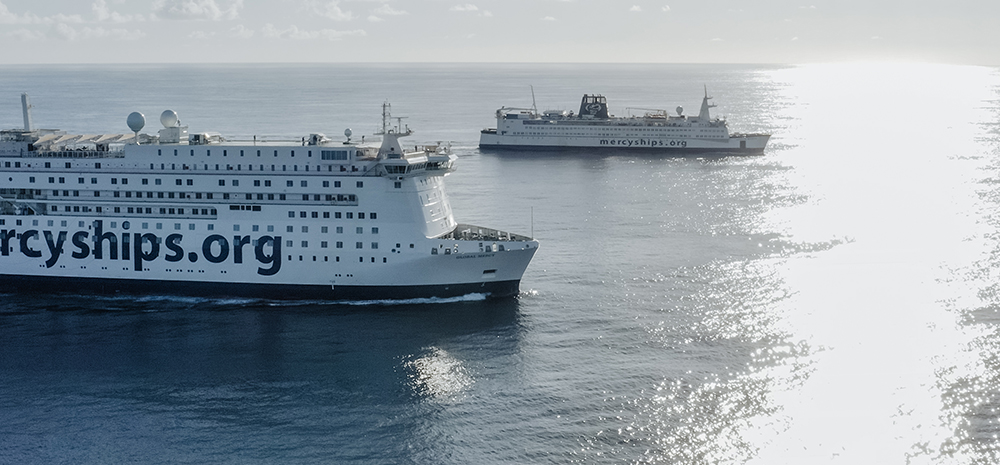Mercy Ships is a world-leading health charity. We run the largest charity hospital ships in the world, to bring free, safe surgeries to people across sub-Saharan Africa.
9 out of 10 people in sub-Saharan Africa can’t access safe surgery. But we believe everyone has the right to healthcare. We use our state-of-the-art floating hospitals to bring expert care directly to the people who need it most.
Working with African nations, we train national healthcare professionals and build stronger medical services. Together, we make a lasting impact – long after our ships depart.
Together we can transform lives
Each year, more than 3,000 volunteers serve onboard the world’s two largest charity hospital ships, the Africa Mercy and the Global Mercy.
Our crew includes captains, seafarers, surgeons, nurses, cooks and cleaners, and their young families, from more than 60 nations. Most of our crewmembers freely give their time onboard, so more funds can go directly to giving our patients expert medical care.
We help women, men and children who are in urgent need of surgery. Many of our patients have waited years – sometimes decades – for healing.
From restoring eyesight so mothers see their babies for the first time, from repairing cleft lips so children can smile with joy, our surgeries are truly life-changing.

One in two people worldwide live near a coast, so our floating hospitals are the best way to reach people in urgent need. Volunteer mariners are just as vital to the work we do as surgeons.
Esther Dietrich, who served as Chief Officer, explains what inspired her to join Mercy Ships, “Being a mariner, I’ve seen a bit of the inequality of the world. My life is so privileged – education, healthcare, money, all things I never had to worry about. I really like the motivation behind Mercy Ships.
“The mindset here impresses me – the way all different crewmembers work together and support each other. The word ‘teamwork’ gets a different meaning.”

Jaël van den Berg, Deck Hand, agrees, “Serving with Mercy Ships helps me see the goodness of people… For me personally, there are continuous opportunities to learn and build on my career skills as well as my personal growth. But most of all, I see that Mercy Ships changes lives!”
We are proud of the many maritime professionals like Esther and Jaël who freely give their skills onboard to help people most in need. Without their help, our life-changing work wouldn’t be possible.

Make a lasting difference with a PartnerShip
If you believe everyone should have the right to free, safe surgery, then please become a maritime partner with Mercy Ships, contact our Partnership Development Advisor, Miranda Strawbridge
By partnering with us, you can help bring vital healthcare to people in unjust poverty. A PartnerShip can bring lasting benefits to companies and organisations like yours:
-
- We can create a bespoke PartnerShips package to suit your company’s needs, based on our shared values.
-
- Our tailor-made packages will engage your team and promote your impact to key audiences, including customers.
-
- You will gain a model to support your corporate social responsibility goals.
-
- You can choose the kind of support you offer, from donations to services.
-
- Your employees can have the opportunity to volunteer on our hospital ships. In this unique experience, professionals will get chance to develop their careers, join our crew of mariners from all over the world, and bring lasting hope to our patients and their families.
Join us!
We’d love to hear from you and explore how you can come onboard.
To find out more about how you can join visit www.mercyships.org.uk today.
Together, we can help thousands of people transform their lives.















